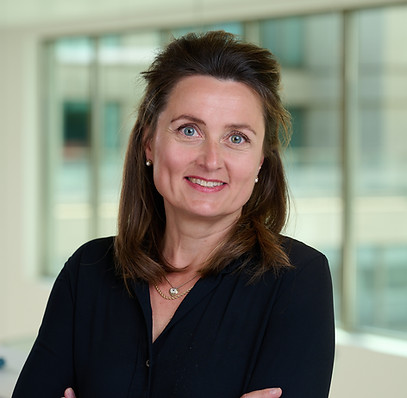
Keynote Speakers

Maarja Beerkens
Maarja Beerkens is Vice-dean at the Faculty of Governance and Global Affairs and Associate professor in international governance at Leiden University, the Netherlands. Her research covers a wide range of issues in higher education and science policy, from quality assurance, leadership and internationalisation to student experiences and teaching practices. She is committed to policy-relevant research and she has conducted projects for the World Bank, the European Commission and the governments in the Netherlands and abroad. She serves in a number of national and international expert committees and as an invited speaker on prominent venues. Last but not least, she is a passionate teacher and a proud finalist of the Leiden University students’ prize for teaching excellence.
Erosion of trust and higher education communities
The emergence of the knowledge economy, global competition for talent and excellence, and performance-based research systems has significantly reshaped the landscape of higher education globally. These dynamics have contributed to the development of a globally integrated, increasingly multipolar, and ostensibly high-performing academic system. Yet, the initial optimism surrounding these transformations is now giving way to critical reflection and growing concerns about an erosion of trust within and around the sector. This paper identifies key trust challenges facing higher education today, emerging from within academia itself, from its interaction with society, from (geo)political pressures, and from technological change. These issues manifest in the evolving critique of contemporary scientific practices (‘science in crisis’), societal skepticism towards scientific authority, the academic publishing industry’s conflicting role in disseminating knowledge, and in (geo)political tensions that increasingly restrict international collaboration and mobility. As trust is a foundational element of the higher education ecosystem, its erosion risks fostering a shift toward more insular communities, such as peer networks, university alliances, regional blocs, and closed communication spaces. These dynamics raise important questions about the future architecture of global higher education and whether more open and resilient models can be envisioned.

Wenqin Shen
Shen Wenqin is Associate Professor of Higher Education at Peking University. His authored and co-authored publications focused on international academic mobility (especially the mobility of college graduates, doctoral students and postdocs), doctoral career trajectories and transnational history of idea and practice of liberal education (China, UK and US). His researches have been published in international journals such as the Higher education, History of education quarterly, Journal of Sociology, Higher education quarterly, Studies in Higher education, among others. He is currently serving as a coordinating editor for Higher education.
Open and Closed Spaces: Geopolitical Realignment and the Changing Landscape of Chinese Doctoral Mobility
Since the 1980s, tens of thousands of Chinese students have pursued doctoral degrees abroad. Simultaneously, many doctoral candidates in China have engaged in international research visits lasting between six and twenty-four months. This extensive degree and non-degree mobility at the doctoral level represents the one of the largest transnational movements of early-career researchers to date, profoundly shaping human capital accumulation in Chinese universities, Sino-Western academic diplomacy, and global scientific collaboration. In recent years, however, shifting geopolitical dynamics and the evolving center-periphery pattern of global academia—marked by the growing research capacity of Chinese universities—have led to significant transformations in these mobility patterns.
First, geopolitical tensions have increasingly restricted doctoral students' mobility to the United States. Although faculty resume data indicate that returnees from the U.S. still constitute the largest share of faculty with overseas experience, national survey data reveal a clear decline in both degree and non-degree mobility to the U.S. in recent years. Second, the geographical structure of mobility is undergoing realignment: while the dominance of the United States as the traditional primary destination has declined, whereas the appeal of countries such as the United Kingdom, Japan, and Singapore has remained stable or even increased. Third, as Chinese universities continue to strengthen their research capabilities, an increasing number of graduates from top Chinese institutions are opting to remain in China for their doctoral studies.
Drawing on national survey data of Chinese Ph. D graduates between 2017-2024, faculty resume records from China’s elite universities, and over 300 in-depth interviews with Chinese students who go abroad since 2020, this presentation will provide a comprehensive analysis of the historical evolution and emerging trends in Chinese doctoral mobility. It will also explore the broader implications of these shifting mobility patterns for higher education and scientific research systems.



